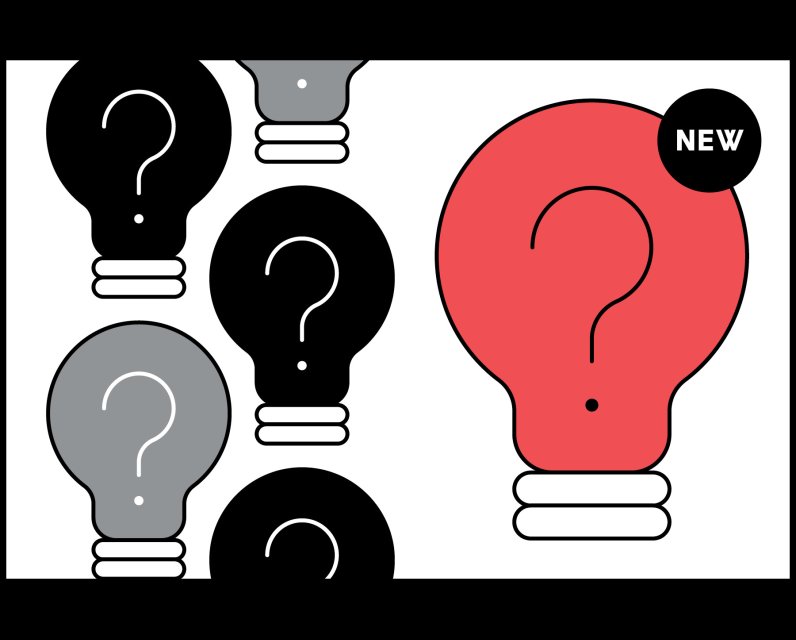Source Feed: Walrus
Author: Kayla Thompson
Publication Date: April 19, 2025 - 06:00
Weekly Quiz: Interprovincial Trade, Indigenous Sovereignty, and the End of WAGE
April 19, 2025

1
2
const title = "Interprovincial Trade, Indigenous Sovereignty, and the End of WAGE";
const date = "April 19, 2025";
const data = [
{
image: "https://walrus-assets.s3.amazonaws.com/img/FEA_Wark_JUN25_Art-08_Web-2.jpg",
title: "How to Save Canada",
url: "https://thewalrus.ca/how-to-save-canada/",
question: "With the US repeatedly making annexationist and imperial threats against Canada, national security and intelligence expert Wesley Wark warns that the country is now staring down the prospect of an information warfare surge from its closest ally. Canada’s strategy to combat US mis- and disinformation would likely be led by Rapid Response Mechanism Canada, a unit within Global Affairs Canada that was originally created for what purpose? ",
options: [
"To restructure Canada’s cybersecurity protocols to better align with United Nations guidelines",
"To issue real-time advisories on foreign threats impacting Canadian trade",
"To help G7 nations coordinate their responses to foreign influence operations",
"To facilitate intelligence sharing between Canada and NATO member states",
],
answer: "To help G7 nations coordinate their responses to foreign influence operations",
correct: "Wark knows that one of the most effective ways to respond to an influence campaign is to expose it—essentially, to name and shame. Much of this work in recent years has been led by Rapid Response Mechanism Canada, a unit within Global Affairs Canada. Introduced at the 2018 G7 summit in Charlevoix, Quebec, to help coordinate responses among G7 nations to foreign influence operations, RRM today focuses on campaigns hitting Canada directly. During general elections, it feeds analysis to the Security and Intelligence threats to Elections—SITE—Task Force, flagging potential interference as it emerges. RRM was involved in SITE’s recent announcement about a coordinated operation originating on WeChat, the Chinese social media platform. The campaign, linked to China, targeted a Canadian Chinese-language audience and sought to mould perceptions of Mark Carney as prime minister and Liberal leader. These kinds of public disclosures serve two purposes. First, they send a message to the perpetrators—in this case, both WeChat and the Chinese government—that Canada is watching. Second, they inform Canadians. If, in future, that kind of warning has to go to Trump or Musk or some other Trump-affiliated media sources, so be it. The Trump–Musk duopoly may not care, but others in the US might.",
incorrect: "Wark knows that one of the most effective ways to respond to an influence campaign is to expose it—essentially, to name and shame. Much of this work in recent years has been led by Rapid Response Mechanism Canada, a unit within Global Affairs Canada. Introduced at the 2018 G7 summit in Charlevoix, Quebec, to help coordinate responses among G7 nations to foreign influence operations, RRM today focuses on campaigns hitting Canada directly. During general elections, it feeds analysis to the Security and Intelligence threats to Elections—SITE—Task Force, flagging potential interference as it emerges. RRM was involved in SITE’s recent announcement about a coordinated operation originating on WeChat, the Chinese social media platform. The campaign, linked to China, targeted a Canadian Chinese-language audience and sought to mould perceptions of Mark Carney as prime minister and Liberal leader. These kinds of public disclosures serve two purposes. First, they send a message to the perpetrators—in this case, both WeChat and the Chinese government—that Canada is watching. Second, they inform Canadians. If, in future, that kind of warning has to go to Trump or Musk or some other Trump-affiliated media sources, so be it. The Trump–Musk duopoly may not care, but others in the US might.",
},
{
title: "Who Needs a Gender Equality Minister? Apparently, Not Carney",
url: "https://thewalrus.ca/who-needs-a-gender-equality-minister-apparently-not-carney/",
question: "When Prime Minister Mark Carney cut the position of cabinet minister for women and gender equality and youth (WAGE), there were concerns about whether or not the decision would result in gender equality issues being overlooked. These fears have since been heightened due to the Liberal government sweeping the former WAGE department under which minister’s file?",
options: [
"Minister of families, children and social development",
"Minister of Canadian culture and identity",
"Minister of diversity and inclusion",
"Minister of health and welfare",
],
answer: "Minister of Canadian culture and identity",
correct: "The former WAGE department has fallen to the newly appointed minister of Canadian culture and identity, Parks Canada, and Quebec lieutenant, Steven Guilbeault, who was previously minister of environment and climate change in the Trudeau government. Debbie Owusu-Akyeeah, co-director of policy and advocacy at Action Canada for Sexual Health and Rights, is worried that sweeping WAGE into a file under the culture and identity umbrella means that women and gender-equality issues will fall through the cracks. “Merging the portfolio of WAGE into a larger ministry that is also overseeing a variety of files, including official languages and things related to Canadian history, there’s major concern that it will get lost in the larger ministerial portfolio or set of files.",
incorrect: "The former WAGE department has fallen to the newly appointed minister of Canadian culture and identity, Parks Canada, and Quebec lieutenant, Steven Guilbeault, who was previously minister of environment and climate change in the Trudeau government. Debbie Owusu-Akyeeah, co-director of policy and advocacy at Action Canada for Sexual Health and Rights, is worried that sweeping WAGE into a file under the culture and identity umbrella means that women and gender-equality issues will fall through the cracks. “Merging the portfolio of WAGE into a larger ministry that is also overseeing a variety of files, including official languages and things related to Canadian history, there’s major concern that it will get lost in the larger ministerial portfolio or set of files.",
},
{
image: "https://walrus-assets.s3.amazonaws.com/img/WEB_Carney_Indigenous-Voters-735x490.jpg",
title: "Canada’s Sovereignty Crisis Feels All Too Familiar to First Nations",
url: "https://thewalrus.ca/canadas-sovereignty-crisis-feels-all-too-familiar-to-first-nations/",
question: "Both Mark Carney and Pierre Poilievre have promised to fast-track projects to boost the economy, but neither has explained how they would address conflicts with First Nations, particularly those regarding consent to project development on their territories. Breaching those agreements can be costly. In 2024, how much money did the federal government pay to settle such claims with Indigenous nations?",
options: [
"$3 billion",
"$8 billion",
"$12 billion",
"$16 billion",
],
answer: "$16 billion",
correct: "Canada’s legal existence—its claim to the lands, waters, and natural resources that US president Donald Trump now wants to seize—is predicated on treaties signed with First Nations, notes The Walrus contributing writer Michelle Cyca. When those agreements are breached, there are big costs: in 2024, the federal government paid more than $16 billion to settle Indigenous claims, a fraction of the estimated total owed. Forging ahead with resource projects without Indigenous consent and true partnership will only add to that astronomical debt. If Canadians really want a stronger nation, they need a prime minister who treats Indigenous people as more than pipeline shareholders.",
incorrect: "Canada’s legal existence—its claim to the lands, waters, and natural resources that US president Donald Trump now wants to seize—is predicated on treaties signed with First Nations, notes The Walrus contributing writer Michelle Cyca. When those agreements are breached, there are big costs: in 2024, the federal government paid more than $16 billion to settle Indigenous claims, a fraction of the estimated total owed. Forging ahead with resource projects without Indigenous consent and true partnership will only add to that astronomical debt. If Canadians really want a stronger nation, they need a prime minister who treats Indigenous people as more than pipeline shareholders.",
},
{
title: "Canadians Want to Buy Local. Their Provinces Make It Hard",
url: "https://thewalrus.ca/interprovincial-trade/",
question: "Calls to eliminate long-standing trade barriers between provinces are gaining new momentum as more and more Canadians ditch American goods for local products. According to lawyer Philip Holdsworth, which Canadian industry best illustrates the layered effects of interprovincial trade restrictions?",
options: [
"The alcohol industry",
"The lumber industry",
"The automotive industry",
"The pharmaceutical industry",
],
answer: "The alcohol industry",
correct: "In a Q&A with The Walrus Chawkers fellow Hailey Choi, Philip Holdsworth, a Toronto-based litigation lawyer, cites the alcohol industry as a notable example of how trade barriers impact Canadians. Each province regulates liquor and sets rules governing how alcohol can be imported, distributed, and sold. These differences can restrict out-of-province producers from accessing other provincial markets. If you want to buy beer from another province, it is going to cost you more. That’s not actually a product of the fact that it’s coming all the way from Nova Scotia or Ontario; it’s a product of provincial regulation that’s designed to prop up and protect the microbrewery industry in those provinces. In 2017, an Alberta-based beer importer arbitrated a dispute with the province of Alberta over a program which imposed markups on craft beer while introducing a grant program to offset the markup for Alberta brewers, creating an uneven playing field. The panel ruled that Alberta’s policy violated the non-discrimination provisions of the Agreement on Internal Trade. The case underscored how such indirect barriers and preferences can affect the market.",
incorrect: "In a Q&A with The Walrus Chawkers fellow Hailey Choi, Philip Holdsworth, a Toronto-based litigation lawyer, cites the alcohol industry as a notable example of how trade barriers impact Canadians. Each province regulates liquor and sets rules governing how alcohol can be imported, distributed, and sold. These differences can restrict out-of-province producers from accessing other provincial markets. If you want to buy beer from another province, it is going to cost you more. That’s not actually a product of the fact that it’s coming all the way from Nova Scotia or Ontario; it’s a product of provincial regulation that’s designed to prop up and protect the microbrewery industry in those provinces. In 2017, an Alberta-based beer importer arbitrated a dispute with the province of Alberta over a program which imposed markups on craft beer while introducing a grant program to offset the markup for Alberta brewers, creating an uneven playing field. The panel ruled that Alberta’s policy violated the non-discrimination provisions of the Agreement on Internal Trade. The case underscored how such indirect barriers and preferences can affect the market.",
},
];
The post Weekly Quiz: Interprovincial Trade, Indigenous Sovereignty, and the End of WAGE first appeared on The Walrus.
WHITBY, ONT. — On
this week’s Ivison video
, regular guest Eugene Lang referred to “the trifecta — or what Van Morrison
would call The Great Deception.”
Lang, an experienced Liberal operative, was talking about the tendency of governments...
April 19, 2025 - 12:57 | John Ivison | National Post
With just over a week left in the campaign, the Liberals and NDP released costed platforms Saturday, as Mark Carney pledged billions in new spending to boost investment.
April 19, 2025 - 12:54 | Globalnews Digital | Global News - Canada
The Toronto Maple Leafs and Ottawa Senators will renew playoff hostilities Sunday — the first time the provincial rivals have faced off in a post-season Battle of Ontario in more than two decades.
April 19, 2025 - 12:42 | Globalnews Digital | Global News - Ottawa




Comments
Be the first to comment